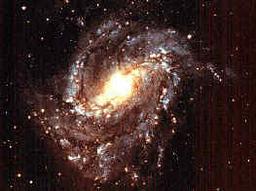
Boot Camp Day 5: Characteristics of the Universe
Quiz by MondlochScience
Grade 8
Science (2010) (Archived)
Texas Essential Knowledge and Skills (TEKS)
Feel free to use or edit a copy
includes Teacher and Student dashboards
Measure skillsfrom any curriculum
Measure skills
from any curriculum
Tag the questions with any skills you have. Your dashboard will track each student's mastery of each skill.
With a free account, teachers can
- edit the questions
- save a copy for later
- start a class game
- automatically assign follow-up activities based on students’ scores
- assign as homework
- share a link with colleagues
- print as a bubble sheet
7 questions
Show answers
- Q1Which statement about stars is correct?main-sequence stars are formed by cometsStar formation begins in a nebulawhite dwards become main-sequence stars when they gain masssupergiants are stars that can absorb black holes60s
- Q2A star that is several thousand times brighter than the sun with a temperature lower than 4,000 K would be classified as -a white dwarf in spectral class Ba supergiant in spectral class Ka main sequence star in spectral class K or Ma main-sequence star in spectral class B120s
- Q3The universe has many different components. Which list places four components of the universe in the most likely order from smallest to largest?Nebulae, stars, planets, galaxiesPlanets, stars, nebulae, galaxiesGalaxies, stars, planets, nebulaePlanets, stars, galaxies, nebulae60s
- Q4A student learns that the sun is classified as a medium-size star and that many stars are much bigger and brighter. However, the student observes that other stars look very dim, even through a telescope. Why do other stars look much dimmer than the sun?Other stars are made up of different gases than the sun is.The sun appears yellow, which is more visible than other colors.The sun is much closer to Earth than other stars are.As light from other stars travel through space, it gets reflected.120s
- Q5120s
- Q6What determines the life cycle of a star?sizemasscolortemperature60s
- Q7List the life cycle of an average starstellar nebula, protostar, average star, red giant, planetary nebula, white dwarfstellar nebula, average star, protostar, red giant, white dwarf, black holered giant, stellar nebula, planetary nebulla, average star, protostarblack hole, average star, stellar nebula, white dwarf, planetary nebula60s